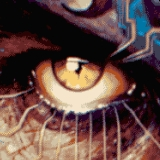You react to choices the specific way you do because of experiences you’ve had previously.
Reverse time without changing anything, you’ll always make the same choices because you’re having the same thoughts each time every time, because you’ve been conditioned the way you are.
The universe doesn’t “know” where it’s going, but the plan is already in action. You can choose whatever you want to do, but if you were the same person in the same circumstance, you would and will always make the same decision.
Deterministic with no actual free will, but complex enough that we’ll never be able to tell the difference. Essentially, our choices may technically be predetermined but for all intents and purposes, they are indistinguishable from free will and can’t be predicted.
Exactly how I feel about it. Whether or not free will exists has functionally no effect on my life. In order to survive and succeed in the world, I am forced to live as if I had free will. The universe isn’t going to do my laundry or clear out my work queue if I don’t make decisions and take actions. While those decisions and actions may be “forced” by the broader universal framework, from the local perspective, I still have to make them.
Therefore, the question itself is meaningless. If I don’t live my life acting like I have free will, whether or not I am engaged in a pre-determined path, shit will get really bad for me really quickly.
I live my life as if I have unlimited free will, and I view the world as if everyone else is fully determined by their circumstances. And then I just ignore the contradiction. Ez pz
Best answer.
My brother and I have been having an ongoing debate about this and Simulation Theory for a good few years.
In my mind, it’s a pointless question to try and answer. It makes for a nice thought experiment, but actually having a belief in it is useless.
The question is underspecified. Why do you want to know if free will exists? What will you do differently if it does exist vs if it does not exist?
This is similar to questions like, “is water wet?” You can generate endless debate on the topic, but it’s all intellectual masturbation until you are genuinely looking for the answer to a specific question.
I like this point of view. Also because it reminds me of Douglas Adams with his “42” thing.
I think it’s important because it affects how we treat each other. If there is no free will, Heaven and Hell make no sense and nobody is “evil”. People like sociopaths who deliberately harm others for personal gain don’t deserve to be punished. They deserve empathy like everyone else, becase if we had their genetic make-up and their life experiences, we would be sociopaths too. I believe people who commit crimes should be helped rather than punished, and that’s partly because I don’t believe in free will.
No.
Hard determinist here. It doesn’t make the future predictable by me, but I don’t see how randomness could really occur. And then likewise there’s no such thing as free will.
Well let’s start by examining the phrase “free will”
The term free has at least two different meanings in common language.
A) free as in beer ( free from cost) B) free as in speach (free from control)
Both of these could be broken down more (e.g. Monetary cost, entropic costs, mental cost and societal control, individual control, physical control… Etc)
Now, “will” is a bit more tricky. In this context we generally use it to mean “choice” However desire, and intention also get mentioned in the definitions.
- desire
- intention
- choice
When commonly discussed I would say people tend to talk about B3(the ability to choose without external physical control)
I would argue 3 requires 2 which requires 1
So now we discuss B1 - are we free to pick our desires.
This I find to be interesting. We often see people desiring things which seem foolish. Foolish as is Unwise. What makes something foolish? Seems to me foolishness is caused by a lack of data and poor modeling.
At this point my phone battery is at 6% So I’ll cut my response short. I see no truly free will. I think our desires can be shaped over time via our input (previous choices) however we can’t roll a die and pick our desires.
I don’t think this is a bad thing. Just maybe not ideal but what is in this world?
You forget, the underpinnings of physics involve a heavy dose of randomness. Contrary to the opinion of a certain famous scientist, God does, in fact, play dice. Lots and lots of dice.
So no, the universe is not deterministic.
Note that this doesn’t mean free will exists. Your decisions may not be entirely predetermined, but them being determined by random chance doesn’t fit the definition of free will, either.
Throughout human history we say things can’t be done until they suddenly get done. I’m half assing it for all free will discussions, and leaping to the conclusion that its deterministic in a way we haven’t yet discovered. My shortcut is wrong, but in such an oh-so-right way! :P
Indeterministic + free-will doesn’t exist and can’t exist. You literally end in impossible contradictions if you entail its existence in a consistent universe (as in, one where everything that exists is subjected to the same natural laws).
As a side note for OP, Hisenberg has proven there’s no such thing as “knowing the initial condition”.
So that’s a topic that fascinated so many people forever.
With all these people fascinated by it, some of them weirdos put their whole life’s at it.
And these weirdos came to a few absolutely terrifying conclusions:
-
The ultimate future is predictable: 2nd law of thermal dynamics means the universe will eventually end with energy being equal everywhere, so there is nothing because there is no difference. That’s the heat death of the universe.
-
Otherwise nothing is absolutely predictable: the uncertainty principle says you can either know the precise position of a particle, or you know the precise movement of a particle, you can’t know both at the same time. So yeh if you know the initial condition you can make a prediction, but you can’t know the precise initial condition at particle level, and since the world is made of particles, you can only make imprecise predictions without 100% certainty.
You could argue that the human mind is a quantum machine. You don’t know it’s initial condition. Nor do you know the precise initial condition of every human mind in the world. The impreciseness of any prediction, even if it could be small individually, adds up in the scale of the world, the universe. So that can be you foundation of free will, up to the heat death.
The fact that something is random doesn’t really mean that it is under some sort of conscious control of the individual whose tiniest constituent parts behave in random ways though.
-
I have the feeling most people cling to free will as a concept because not having free will raises questions if a “self” truly exists. However the existence of free will can be as scary if not more, since how could we define a “self” if it could freely do something not based on what defines it.
Free will is way too vague of a concept, that it’s probably not worth pursuing the answer.
I agree. Such as hope, love, life, god, good, bad, justice…
I don’t think those are the same (except god). Most of those are abstract words for a category where we can absolutely point to individual instances that do definitely exist.
I think it’s more complicated than free will existing or not.
If you knew every single possible value about the universe at its start and had a perfectly accurate model of physics, you could theoretically predict/simulate everything that would ever happen. For practical reasons, though, that’s impossible, even ignoring weird quantum effects, for the simple reason that that is a lot of data points, more than any of us could reasonably keep track of- it’s like how, in sufficiently controlled conditions, a fair dice can roll the exact same number 100% of the time, but there are enough variables that are hard enough to control for in a normal situation that it’s basically random.
Similarly, if you knew everything about every human on Earth, you could theoretically predict exactly what any of them would do at any given moment. Of course, that’s just not practical- the body and brain are a machine that is constantly taking in input and adapting to it, so in order to perfectly predict someone’s thoughts and actions, you’d need to know every single detail of every single thing that has ever happened to them, no matter how small. Then, you’d need to account for the fact that they’re interacting with hundreds of other people, who are also constantly changing and adapting. It’s just not possible to predict or control a person for any reasonable length of time like that, because one tiny interaction could throw off the entire model.
Just look at current work with AI- our modern machine learning algorithms are much more well-understood and are trained in much more contained environments than any human mind, and yet we still need to manually reign them in and sift through the data to prevent them from going off the rails.
So, technically, I suppose free will doesn’t exist. For practical purposes, though, what we have is indistinguishable from free will, so there’s not much point getting riled up about it.
Quantum mechanics shows the universe really does just operate on probabilities. On the smallest scales we can probe we see that the universe is non-deterministic. But average out those probabilities 10^20 times for a coin and everything may look pre-determined to our macroscopic lives.
Now see, if you’re looking at things from a biological point of view, it’s important to recognize the forest from the trees. A few trees are, well, just a few trees. But a great many trees together constitutes a forest, and becomes more than the sum of its parts. I feel the same way about the human brain. Yes, it’s a series of electrical and chemical impulses, but there are so many of these working in tandem that it becomes exponentially more complex, akin to ever-advancing computer technology. It’s complex enough that we think, we talk, we make decisions. And those decisions aren’t based solely on instinctional drive, and can even be made in opposition to them.
It’s true that human behavior can be accurately predicted based on an individual’s natural tendencies, but there are never any guarantees. There’s always a choice, a chance to veer off course. Decisions can be prudently made after careful research, or made on a frivolous impulse. Maybe you even realize that you would ordinarily take one action in a given situation, but do the exact opposite. You consciously chose to ignore your first impulse. If free will is an illusion, it’s a damned convincing one.








